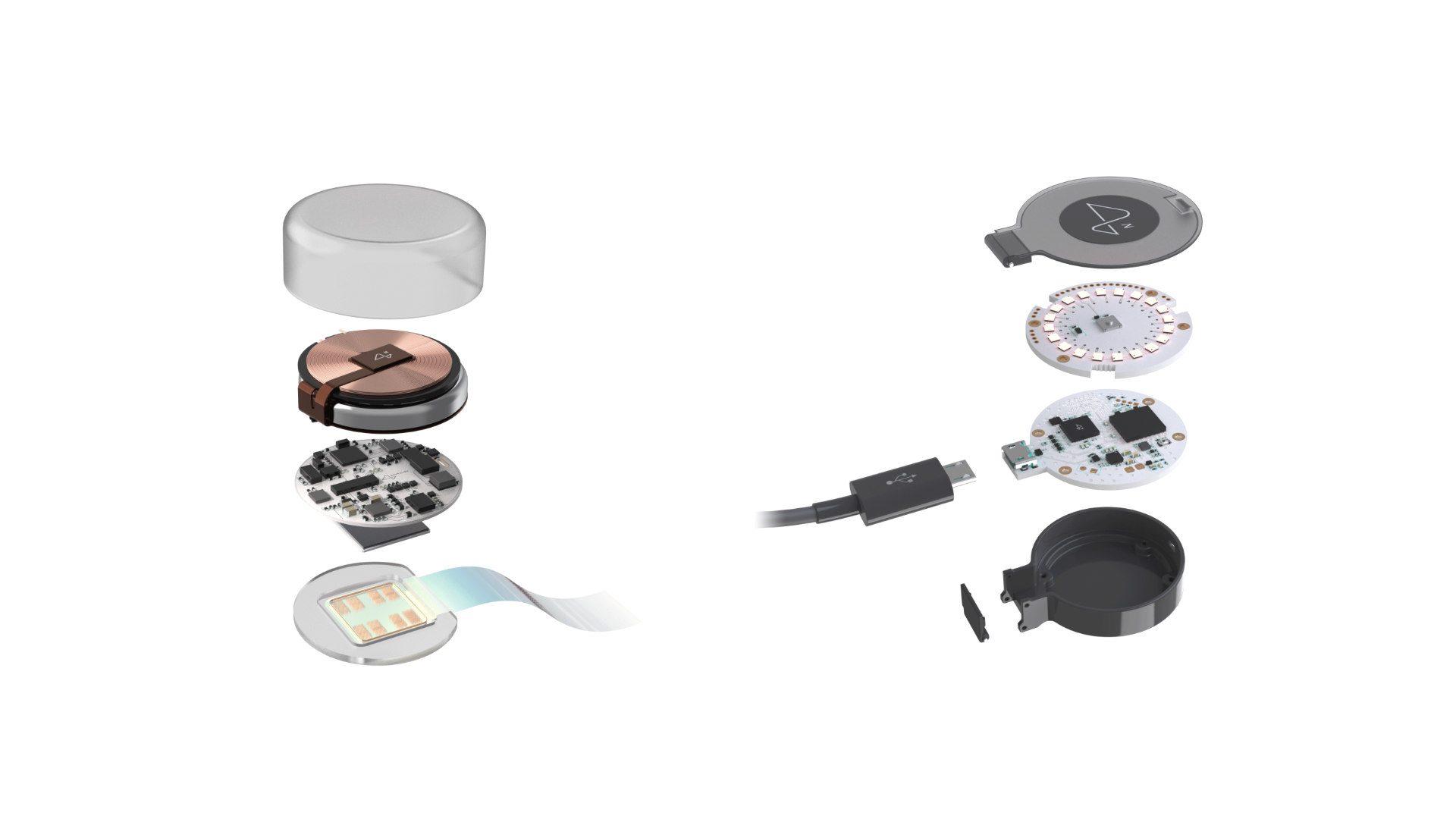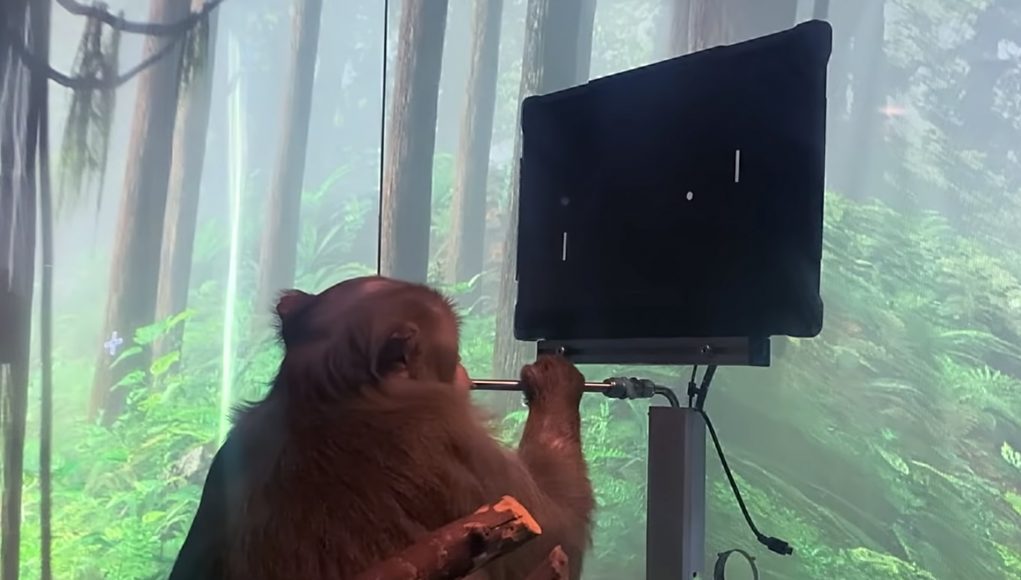Neuralink, the brain-machine interface (BMI) company created by Elon Musk, released a video showing off a live trial of its brain implant in a monkey. Using the primate’s own recorded brain data, Neuralink demonstrated that the monkey was not only able to manipulate a desktop cursor, but also play a game of Pong (1972) at speed.
Back in late 2020, Neuralink showed off a wireless version of its ‘N1 Link’ implant working in pigs which streamed 1,024 channels of neural data in order to track limb movement. Now the company has revealed its research in primates, or more specifically, in a macaque named Pager.
In the video, Neuralink shows Pager’s implants at work, first recording baseline neural activity, and then acting as a wirelesss controller to interact with a computer cursor, then a game of Pong.
In a blogpost, the company says it placed a pair of N1 Link devices in the hand and arm areas of the motor cortex, a part of the brain that is involved in planning and executing movements. Like its previous research on pigs, the operation is being billed as fully reversible.
The N1 is a sealed, implanted device that processes, stimulates, and transmits neural signals. Attached to the implant are small, flexible threads containing electrodes for detecting neural signals. Charging and wirelessly transmitting data is done via a removable, outside unit.

Neuralink has some pretty lofty goals with its BMI technology. It not only hopes to build an implantable device that can read electrical brain signals from paralyzed users, but also eventually make that technology available to neurotypical users too alongside the ability of “writing” signals back to the brain. It holds some interesting implications for the future of gaming which have drawn the interest of Valve, Facebook, and many more.
“Our first goal is to give people with paralysis their digital freedom back: to communicate more easily via text, to follow their curiosity on the web, to express their creativity through photography and art, and, yes, to play video games,” the company says. “After that, we intend to use the Link to help improve the lives of those with neurological disorders and disabilities in other ways. For example, for people with paralysis the Link could also potentially be used to restore physical mobility. To achieve this, we’d use the Link to read signals in the brain and use them to stimulate nerves and muscles in the body, thereby allowing the person to once again control their own limbs.”
We’re likely years away from Neaurlink’s end goal of “read and write” capability, however the company is making headway. Musk revealed last year that Neuralink had been granted a “breakthrough” designation by the US Food and Drug Administration, something which allows for medical treatments and devices.







